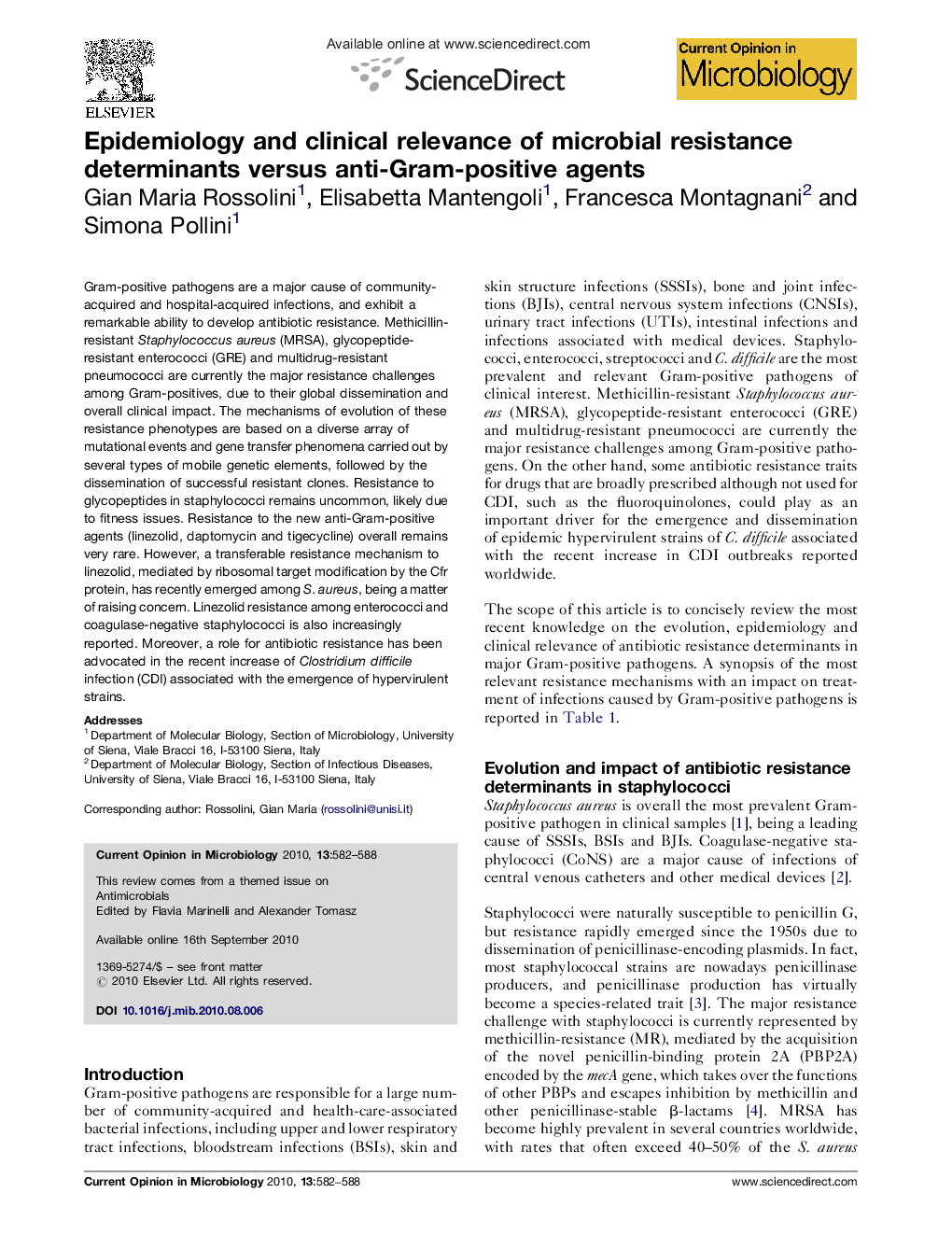| کد مقاله | کد نشریه | سال انتشار | مقاله انگلیسی | نسخه تمام متن |
|---|---|---|---|---|
| 6132352 | 1222507 | 2010 | 7 صفحه PDF | دانلود رایگان |
عنوان انگلیسی مقاله ISI
Epidemiology and clinical relevance of microbial resistance determinants versus anti-Gram-positive agents
دانلود مقاله + سفارش ترجمه
دانلود مقاله ISI انگلیسی
رایگان برای ایرانیان
موضوعات مرتبط
علوم زیستی و بیوفناوری
ایمنی شناسی و میکروب شناسی
میکروب شناسی
پیش نمایش صفحه اول مقاله

چکیده انگلیسی
Gram-positive pathogens are a major cause of community-acquired and hospital-acquired infections, and exhibit a remarkable ability to develop antibiotic resistance. Methicillin-resistant Staphylococcus aureus (MRSA), glycopeptide-resistant enterococci (GRE) and multidrug-resistant pneumococci are currently the major resistance challenges among Gram-positives, due to their global dissemination and overall clinical impact. The mechanisms of evolution of these resistance phenotypes are based on a diverse array of mutational events and gene transfer phenomena carried out by several types of mobile genetic elements, followed by the dissemination of successful resistant clones. Resistance to glycopeptides in staphylococci remains uncommon, likely due to fitness issues. Resistance to the new anti-Gram-positive agents (linezolid, daptomycin and tigecycline) overall remains very rare. However, a transferable resistance mechanism to linezolid, mediated by ribosomal target modification by the Cfr protein, has recently emerged among S. aureus, being a matter of raising concern. Linezolid resistance among enterococci and coagulase-negative staphylococci is also increasingly reported. Moreover, a role for antibiotic resistance has been advocated in the recent increase of Clostridium difficile infection (CDI) associated with the emergence of hypervirulent strains.
ناشر
Database: Elsevier - ScienceDirect (ساینس دایرکت)
Journal: Current Opinion in Microbiology - Volume 13, Issue 5, October 2010, Pages 582-588
Journal: Current Opinion in Microbiology - Volume 13, Issue 5, October 2010, Pages 582-588
نویسندگان
Gian Maria Rossolini, Elisabetta Mantengoli, Francesca Montagnani, Simona Pollini,